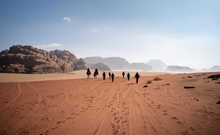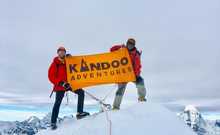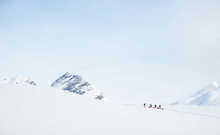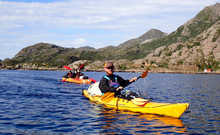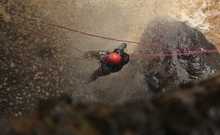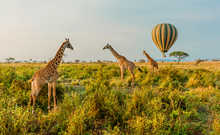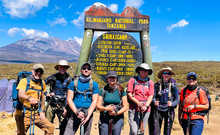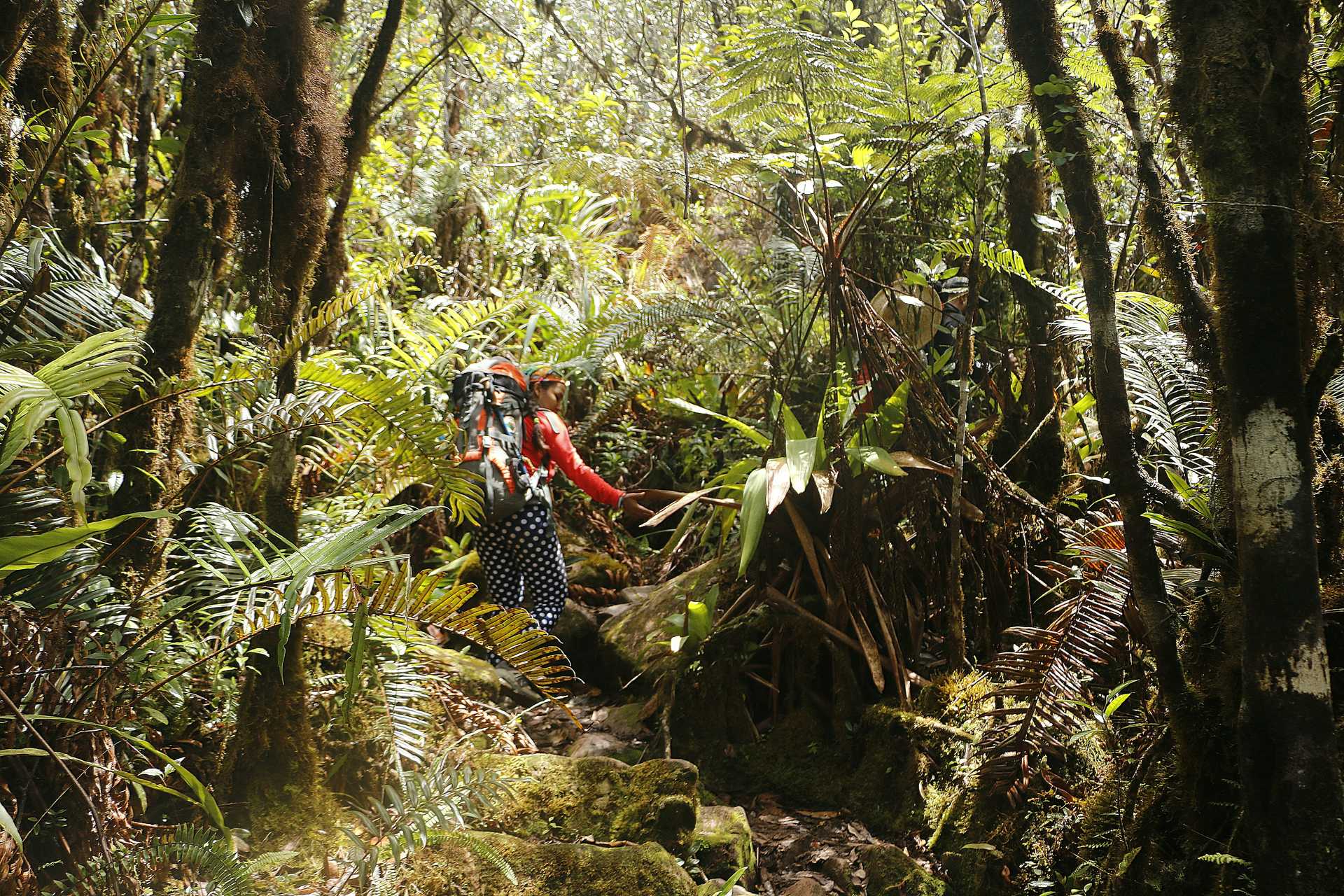Practice Hiking
The best training by far is to get your walking boots on and get lots of miles under your belt, preferably carrying a rucksack to get used to the weight. Whether this is two to three hours walking locally or full days away on your nearest hills, you just need to clock up lots of hours on your feet as more than anything else it is consecutive days walking that people find tiring. And the best cure for this is to have spent lots of hours just walking.
Hiking practice allows you to understand the stress your joints will be put under and how well you can deal with this. It also allows you to wear in your boots as this takes some time and can often be uncomfortable. Start with a comfortable distance that suits you and slowly try to work your way up to a 5-6 hour trek. If you can do this a few times then you'll be in good stead. Trying trails with uneven footing will also help you to prepare and get used to the mental strain of constantly watching your feet.
Aerobic Training
Aerobic (or cardio) training will be a key factor in allowing you to enjoy your trip to Guyana. Aerobic literally means 'requiring free oxygen' and refers to the use of oxygen to adequately meet energy demands during exercise via aerobic metabolism.
Aerobic exercise builds up your cardiovascular system allowing you process limited oxygen in a more effective way. Aerobic exercise, unlike anaerobic exercise, requires oxygen for elongated periods of time. Examples of aerobic exercise would be lane swimming, long distance jogging, walking and cycling. Depending on fitness, we recommend a 3-6 month training plan. Your hiking practice will help, but we also suggest running 6-12km three times a week. If you're using a treadmill remember to set a slight incline.
Strength Training
Any training plan should also include strength training. Although not as important as your aerobic training, strengthening your upper body and core, will greatly increase your ability to carry a heavy pack over multiple days. To strengthen your legs we recommend doing the following exercises:
- Squats
- Front and reverse leg curls
- Lunges
- Step aerobics
Remember when doing these exercises to keep watch of your technique. Exercises done with poor technique will more often than not harm you instead of help you. Building upper body and core strength is also crucial as you'll not only be standing for hours, but you'll also be carrying gear.
We recommend the following exercises to strengthen your upper body and core:
- Shoulder presses
- Back and shoulder flyes
- Sit-ups
- Kettle-bell rows / swings
Remember to stretch after all exercise sessions! Increasing flexibility will allow your body to recover more quickly overnight after trekking all day. No one wants to trek for 7 hours after waking up with stiff joints aching all over!
The importance of stretching
Most sports injuries occur due to poor stretching. This is particularly true where repetitive movements over tough terrain put a lot of stress on joints and muscle. To loosen your muscles and increase suppleness we recommend adopting a regular stretching regime. Spend 10 minutes every morning stretching your main muscle groups.
Mental Stamina
Just as important as physical stamina is mental stamina and attitude. There always comes a point (most often midway through the trip) that you will want to quit and take a day off. Keeping a positive attitude and digging deep to push through is incredibly important and a valuable skill.
Training your mental stamina is no easy thing, but there are ways to accomplish it. You essentially need to construct an activity that pushes your body to what it thinks is its limit, then you need to push past that to reach your goal.
A great way to achieve this is long distance running such as half marathons and full marathons. A marathon will push you to your limit whilst having an achievable goal in sight - the finish line. If you can do this with a friend or training partner then all the better as you will both push each other to achieve more.
